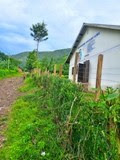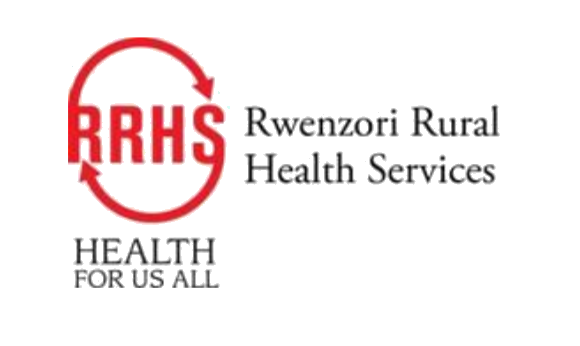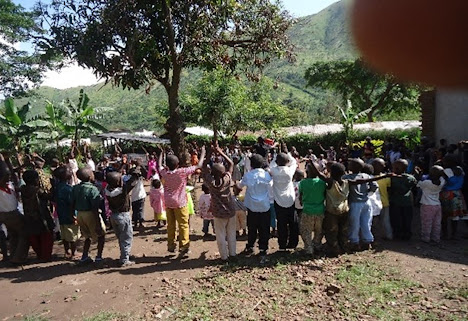July 2020 - RRHS Facebook Page RRHS YouTube Page
Dr Majid Jaridi visited our project here in Uganda as a part of an assessment for the Min. Gravity Flow Scheme. He came with other members of a team from the West Virginia University in 2017.
During his visit, Dr Jaridi and other group members interacted with children in the area. He noticed how much children looked in need, and were dressed in old dirty clothes due to poverty.
Leaving Uganda, Dr Jaridi was determined to share with friends and family what he had seen here.
Dr Jaridi, and friends and family mobilised funds and wired them to RRHS to purchase clothes and shoes for needy children.
Once funds had been received, RRHS mobilised to acquire clothes and shows for 400 children.
However, the emergency of Covid-19 disrupted this plan, causing RRHS staff to travel far to Kampala to buy clothes and shoes.
Nevertheless, the supplies were received back in the village, ready for distribution.
See here shoes bought for children in the village. Many thanks to Dr Jaridi, and friends and family.
RRHS recognises the importance of creating global relationships to further rural development.
We are grateful to anyone who chooses to like our posts, share them with friends and donate to our cause.
To ensure efficient distribution of clothes to the most in-need children in the village, RRHS created and sent out 400 registration forms.
This allowed us to gather information about the children, that we needed to deliver their clothes. Every registration form had a specific serial number.
Once 400 children had been identified for donations, RRHS sorted clothes and shoes into individual carrier bags to be gifted to the children. Bags were labelled with serial numbers to ensure efficient distribution.
Due to Covid-19, small groups of 50 children gathered to collect their clothes at any one time. This group of children can be seen waiting patiently (and excitedly!) for their clothes and shoes.
The children, parents, locals and local government were very pleased with this donation. One child said:
"My names are Masika Joines 11 years in primary six, I am so excited, to receive clothes. In my life, this is the first time to receive clothes and shoes from friends I do know at all. Thank you so much for these items. May God bless your hands."
Another child said:
"Baluku James are my names, aged 10 years, in primary five. For me the clothes and shoes came at the time I needed them. I had no good clothes to put on when visiting. Thanks to Charles Kiima for this project. I am now able to visit my friends with new clothes and shoes.
Once again, a massive thank you to Dr Jaridi and friends and family. We are always looking for our next project to enhance rural development. If you would like to intern or volunteer with us please email ruralservices60@gmail.com.
























































